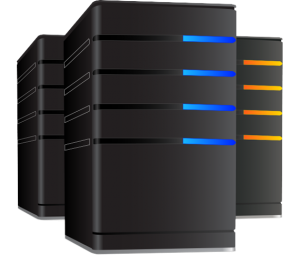A dedicated server means a server exclusively available for a single client, a website operator, a task or even a specific service that requires extraordinary performance.
The dedicated server or dedicated host is a physical computer with a fixed IP address, unlike a virtual server. It concentrates all its processing power, memory and connection strength on a single client or a single task.
Summary
1 Dedicated to a client
2 Dedicated to a service
3 Advantages of dedicated servers
4 Examples of use of dedicated servers
5 dedicated servers in digital marketing
Dedicated to a client
If you decide to rent a dedicated server, the server’s hard drive will no longer be shared with other users and the rights of use will therefore no longer be limited. The costs are generally higher than for similar shared or shared hosting agreements, with which the server hardware is not exclusively available to the client.
Complex websites receiving a lot of traffic , data entry or output such as web communities or e-commerce sites require a lot of RAM, often much more than what is offered by a web space with limited capacity. The website manager will look in this case rather for a dedicated server. Companies that are not in favor of sharing their sensitive data with third parties on the same server often prefer dedicated hosting.
Dedicated to a service
If the dedicated server is not used for a client, then it is used for a service. It performs a number of tasks such as providing print or email services, as well as management tasks within a network. It can also be database, video game or VPN servers. In this way, a dedicated server is a host intended only for a specific task.
Systems that are not compatible with other systems and services may also be hosted on such servers. This also applies to certain services which use only one host. Here, the border between a server dedicated to customers or to a service is relatively vague. Indeed, a server that hosts only one web project is already by definition a dedicated server. If it is also managed by the client, it will be doubly dedicated: to the client and to the web service.
Benefits of dedicated servers

The advantages of the dedicated server in terms of performance can be:
The memory can be individually adapted to the required performance.
The performance of the server can be adjusted without problem during a very good development of a web project that involves more traffic, greater reception of data, etc., without the resources having to be shared.
The customer has the option of individually installing the software required for his server.
A dedicated server generally offers more security for the tenant. On the one hand, the risk of other websites affecting your project due to their security gaps is reduced, on the other hand all the data on the server is available only to the client.
Compared to the virtual server, the client has full user rights as well as complete freedom of use with regard to the installation of the software.
The project hosted on the dedicated server benefits from high availability.
When it comes to technical SEO , high-value web projects should always be hosted on dedicated servers. In this way, the webmaster sends a signal to Google and the other search engines from the start that this is not a cheap or qualitatively low web project.
In principle, these advantages are applicable to both versions of dedicated servers. The only difference is that the server is assigned either to a client or to a service.
Examples of use of dedicated servers
The following scenarios totally encourage the use of a dedicated server:
Online shops with a large inventory of products and a high traffic: basically, it is advisable to provide maximum performance and security in the field of e-commerce . Anyone who manages an online shop should use a dedicated server. In addition to greater security, the performance of this type of server is scalable and can therefore be adapted to growing needs. The accessibility of the server also plays a big role here.
Websites with a large data reception: a website which offers a large number of data to download and which also receives a lot of data should opt for the dedicated server, because the server performance can be adapted to the volume of data and the risk of server downtime is minimized during peak downloads.
Social networks : large forums or other community sites should also be operated based on the performance of dedicated servers. For example, when due to a hot topic, a huge flow of visitors is to be treated, the dedicated server is quite able to compensate for unusual or intense activity.
Dedicated servers in digital marketing
In the sale of web hosting, the term “dedicated server” is often used to justify to customers a more expensive offer and the exclusivity of the service. Conversely, virtual or shared servers would therefore be assumed to be less efficient and to offer lower quality. If the service is really better, it depends rather on the quality of the supplier. They often offer a more extensive service with the dedicated server, with software and hardware support. The next step is therefore a managed or un-managed server: the service provider performs tasks such as updates and monitoring of services.
Determining which server solution is best for a certain client depends on many points. The customer must be fully informed of the various aspects of the infrastructure. This can also be important for online marketing and SEO optimization. In addition, relative aspects are taken into account, such as the IPs of clusters or subnets, high accessibility, adequate server usage as well as performance criteria such as processing power, storage capacity and high data rate in cases of high traffic. Depending on the circumstances, so-called CDN solutions are also more useful.


